May 24, 2025 | 11:53 GMT +7
May 24, 2025 | 11:53 GMT +7
Hotline: 0913.378.918
May 24, 2025 | 11:53 GMT +7
Hotline: 0913.378.918
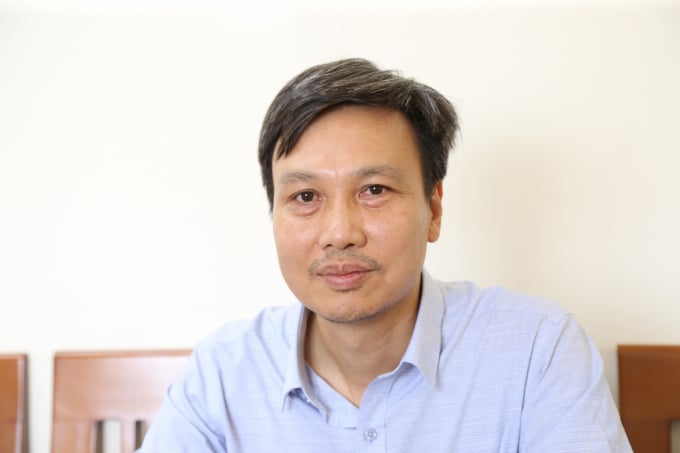
Master Tran Lam Dong, Director of the Institute of Silviculture (Vietnam Forest Science Institute). Photo: Minh Phuc.
About 20 years ago, acacia growing areas began to thrive. Its advantages are easy to grow, short cycle, fast to harvest, low value, but easy to consume.
In particular, acacia trees are widely adapted to different sites and climates from about 600 - 700 meters above sea level. Currently, the whole country has about 3.69 million hectares of production forests. The area of acacia plantation is estimated at 2.2 million hectares, with two commonly planted varieties, Acacia mangium and Acacia hybrid. Melaleuca has less than an area of about 2.2 million hectares.
However, although it is mainly on a household scale, the massive development of acacia, planted in a concentrated, inter-regional, and consecutive plot on a large scale, will entail many ecological and environmental factors and does not guarantee sustainable performance.
In many localities, forest owners have not yet complied with acacia planting techniques, especially in site management and forest productivity.
Another interesting issue is that, at present, people have not applied low-impact harvesting methods, but exploiting the acacia forest is the way to spontaneously open the way there, creating interlaced roads up the hill. Such paving makes cuts in the sloping land surface, which gradually accumulates rainwater leading to landslides.
The Forestry Research Institute has carried out surveys and surveys in the Central region and found that the average density of acacia plantations ranges from 1,500 to 3,000 trees per hectare. There are areas where people grow acacia within a short cycle. The thickness can be up to 6,000 - 7,000 trees per hectare.
In terms of value, short-term timber plantations (from 4-5 years) have lower economic efficiency than large-scale, sparsely planted timber plantations.
Acacia has the advantage of being a nitrogen fixer, so it has the effect of improving the soil. Acacia plantations can improve soil well (better porosity, mineral nutrients, humus, and physical properties).
However, many people do not understand the characteristics of acacia trees. There is no planning for acacia growing areas, so there is a situation of abuse of acacia in protected forests. It is not true because acacia has no protective effect because acacia is very absorbent.
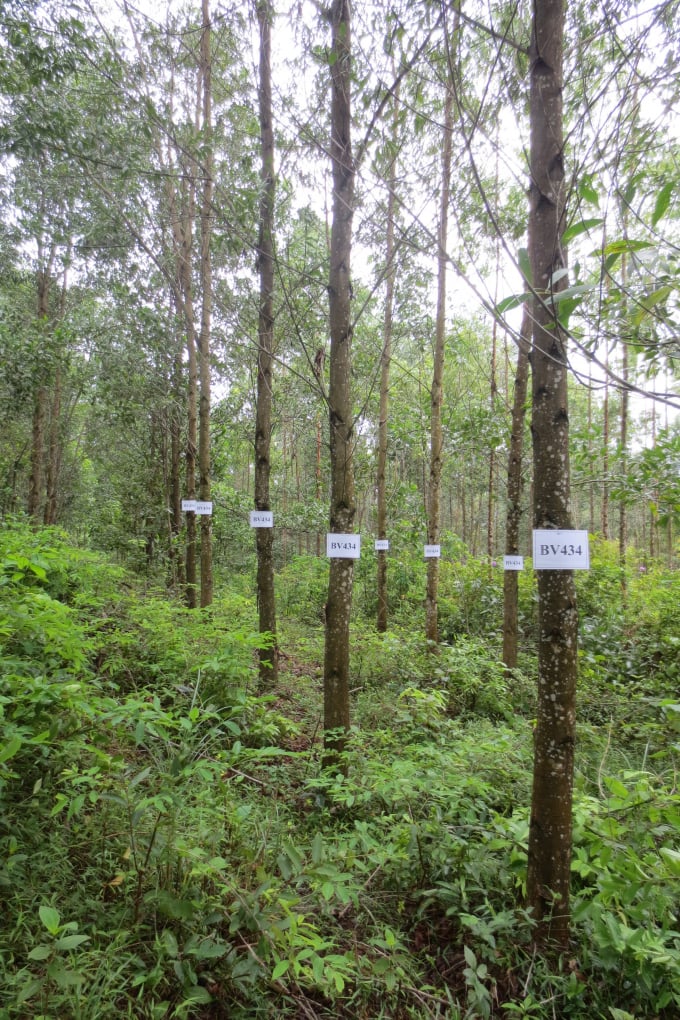
In recent years, the Vietnam Academy of Forestry Science has been promoting the development of several varieties of Melaleuca.
In Thailand and Malaysia, forest owners thrive on teak trees. Currently, 1m3 of teak wood costs more than US$ 1,000 (equivalent to more than VND 20-25 million). Thus, one kilogram of wood is worth about VND 25,000.
One of the solutions to improve the value of acacia forests in the immediate future that localities are promoting is to convert acacia wood chips to large, long-cycle timber. However, not every site can grow acacia with a long cycle.
In the 2014-2017 period, thousands of hectares of acacia trees were destroyed in the Central region. The phenomenon of acacia trees dying naturally due to the lack of water. Where the soil layer is thin, only short-cycle acacia should be planted, and long-cycle planting or large timber plantations should not be planted.
Some localities have realized the benefits of large timber plantations and encouraged people to follow. But in many places, they have not yet paid attention to the technical issues, so they have developed massively, everywhere, encouraging the development of wide-body wood forests but have not yet paid attention to suitable soil.
Vietnam is the country that develops the most acacia trees. The average biomass yield of the whole country is about 20m3 per hectare each year. However, many countries have much more productive forest species.
If farmers follow the proper techniques in Vietnam, they can increase the yield to 25-30m3 per hectare each year. However, most people still grow acacia varieties that do not guarantee quality, and farming techniques are unsuitable.
In recent years, the Vietnam Academy of Forestry Science has been promoting the development of several varieties of Melaleuca. Previously, Acacia mangium and Acacia hybrid varieties were not good quality, so the tree was not straight, not beautiful, and people did not like it.
The Institute has selected straight and beautiful Melaleuca varieties, and the wood quality is much better than Acacia mangium and Acacia hybrid. The growth performance tested in some places was also close to Acacia mangium and Acacia hybrid.
Previously, the Vietnam Academy of Forestry Science proposed to the General Department of Forestry to submit the Ministry of Agriculture and Rural Development to develop local maps of acacia growing areas across the country so that the Institute would have more specific instructions.
Translated by Ha Phuc
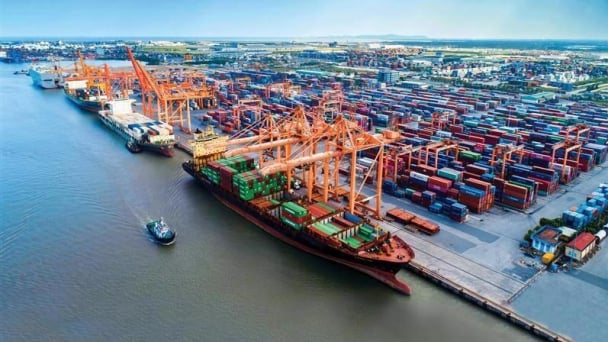
(VAN) South Korea is currently the second-largest investor in Hai Phong in terms of the number of projects (186 projects) and the largest in terms of total registered investment capital, reaching USD 14.2 billion.
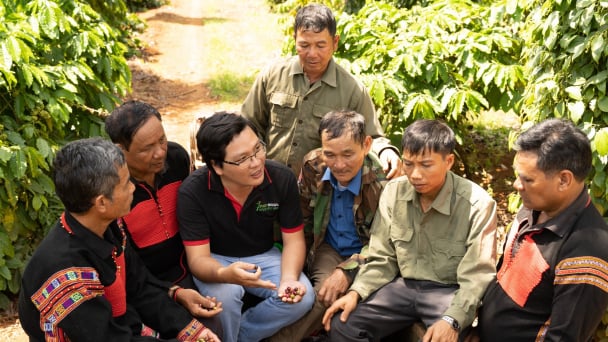
(VAN) As consumers become more environmentally conscious, legal regulations grow increasingly stringent...
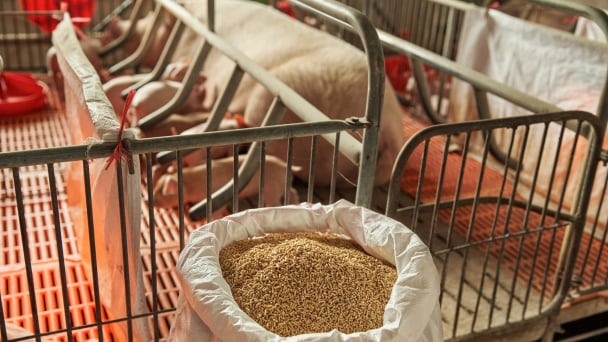
(VAN) CJ Feed&Care officially launched the FCR improvement campaign called “2025 Find Challenge Reach” in April 2025. In Vietnam, this campaign is implemented by CJ Vina Agri.
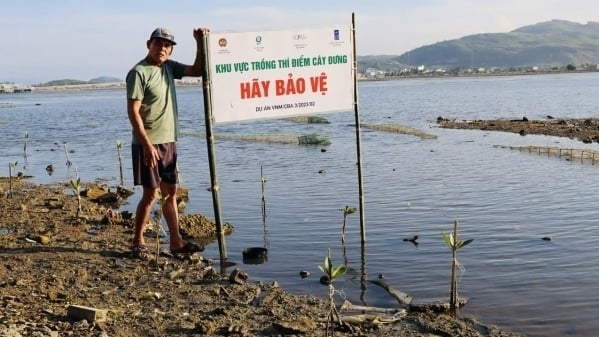
(VAN) The swamp in Pho Thanh is gradually being covered with red mangrove, creating a favorable environment for producing clean, high-quality salt.

(VAN) The trade turnover of agro-forestry-fishery products is growing significantly, along with investment cooperation commitments that are opening up new development directions between Vietnam and Russia.

(VAN) Khanh Hoa is investing over 545 billion VND to develop 240 hectares of high-tech marine aquaculture in order to guarantee a consistent supply of seafood exports and achieve the USD 1 billion target.

(VAN) Minister of Agriculture and Environment Do Duc Duy held a meeting with Soopakij Chearavanont, Chairman of C.P. Group, on May 15.